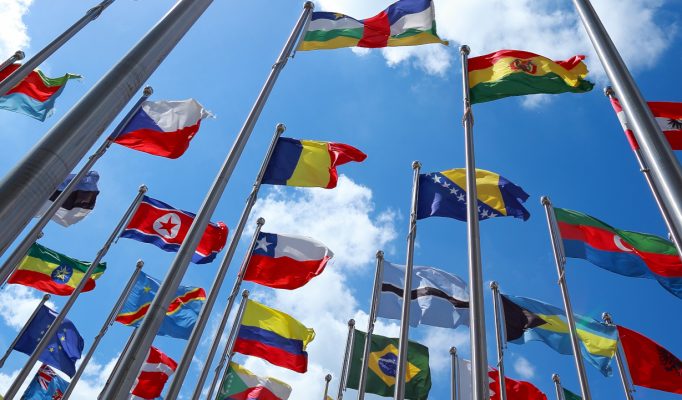After seven years of negotiations, Switzerland pulled the plug on 26 May 2021 of years of efforts to sign a historic partnership agreement with the EU. Due to ‘substantial differences on some key aspects’, further talks make no sense, according to the Swiss.
This decision by the Swiss Federal Council means that the current agreements between the two parties – a patchwork of bilateral treaties, some of which are almost 50 years old – will not be ‘modernised’ and will lapse. This will have major consequences for, among other things, the mutual recognition of medical devices, as the new European rules came into force on 27 May 2021 and are therefore not included in the old agreements with the Swiss. As a result, Swiss certificates are no longer recognised by the EU.
Partly in view of the Covid pandemic, this is a bad time to break off negotiations. Due to the lapsing of the recognition of medical equipment, among other things, hypodermic needles and respirators would no longer be able to cross the border with the EU now that the certificates are no longer recognised by the EU, with all the consequences that this entails.

In addition, more than 120 bilateral trade agreements are also at stake. These treaties give the Swiss access to the EU internal market – which accounts for 51% of Swiss exports as well as 60% of their imports – but they also grant EU citizens the right to work in Switzerland. In return, Switzerland is now adopting EU rules.
The stakes are therefore high: Switzerland is the EU’s fourth-largest trading partner, while Switzerland trades more with the EU than with anyone else.
The EU would have liked to tie up the many bilateral treaties with Switzerland in a ‘framework agreement’, but the Brexit had complicated the talks, as the Commission’s tough negotiating stance against the British government on issues such as protecting the EU’s single market meant that Brussels did not want to be seen as more flexible with the Swiss. And that is where it backfired.
The Swiss demanded exemption from three parts of the framework agreement: the European rules on state aid, access of EU workers to the Swiss welfare system and protection of higher Swiss wages.
The Commission rejected such exemptions as ‘simply not acceptable’, arguing that Switzerland’s ‘privileged access’ to the EU market means it has to abide by the same rules as the bloc’s member states, hence free access to each other’s labour market.
Because the Swiss government expects that the framework agreement will have to be submitted to the Swiss people and they would not accept it in its current form, the Swiss decided to end the negotiations because the necessary solutions could not be reached. However, the Swiss government wants to keep the political dialogue open and continue talks with the EU on keeping the bilateral agreements ‘up-to-date’, as this is in the interests of both Switzerland and the EU.
The Commission’s refusal to negotiate alternative deals with Switzerland – at least for the time being – means that there is little reason to expect such fruitful cooperation in the near future.
What does this mean for entrepreneurs who trade with Switzerland?
The breakdown of negotiations makes disruptions in economic relations inevitable.
Although the 1972 EU-Switzerland Free Trade Agreement will remain unchanged due to the rejection of the Framework Agreement, this will create costly obstacles for entrepreneurs by making market access considerably more complex and therefore more expensive. For example, economic operators will have to re-certify their products because certificates are no longer automatically valid for the EU/Swiss markets. This may cause delays in the supply chain.
But also in the food sector problems may arise because there is no harmonisation, for example, in the area of food labelling, which means additional costs for exports. This restricts the market access of certain agricultural products, such as meat and dairy products.
So should you forget about the Swiss market altogether? Certainly not!
Many Dutch entrepreneurs and companies do business across the border. Switzerland also has a certain attraction for Dutch entrepreneurs. However, doing business across borders also changes the game and the rules. Things that are quite normal in the Netherlands turn out to work slightly differently abroad. The success of cross-border transactions therefore not only depends on the quality of the goods or services, but also the preconditions must be properly prepared and coordinated.
For more information, please contact us.
An important argument for this is that Edith Nordmann, Managing Partner of ACG International, is the service provider with the most experience. She has already helped many (Dutch) companies successfully and penalty-free with the preparation, execution and handling of projects in Switzerland.
Book your free “Swiss-Project-Check” session:
If you would like more information on how to ensure that your project in Switzerland remains profitable despite these developments, you can sign up for a free “Swiss-Project-Check” session with Edith Nordmann, the service provider with the most experience in assisting companies that send employees to Switzerland for the implementation of a project.
In this 15-minute telephone session, you will:
- identify the risks you face with a project in Switzerland and learn how to avoid them;
- discover the hidden challenges that could reduce the profitability of your project in Switzerland;
- understand the action you need to take to overcome these challenges and get more profit from your Swiss project without hidden challenges and pitfalls.
To book your free 15-minute “Swiss-Project-check” session, send an e-mail to info@acginter.com or call 020 800 64 00.


